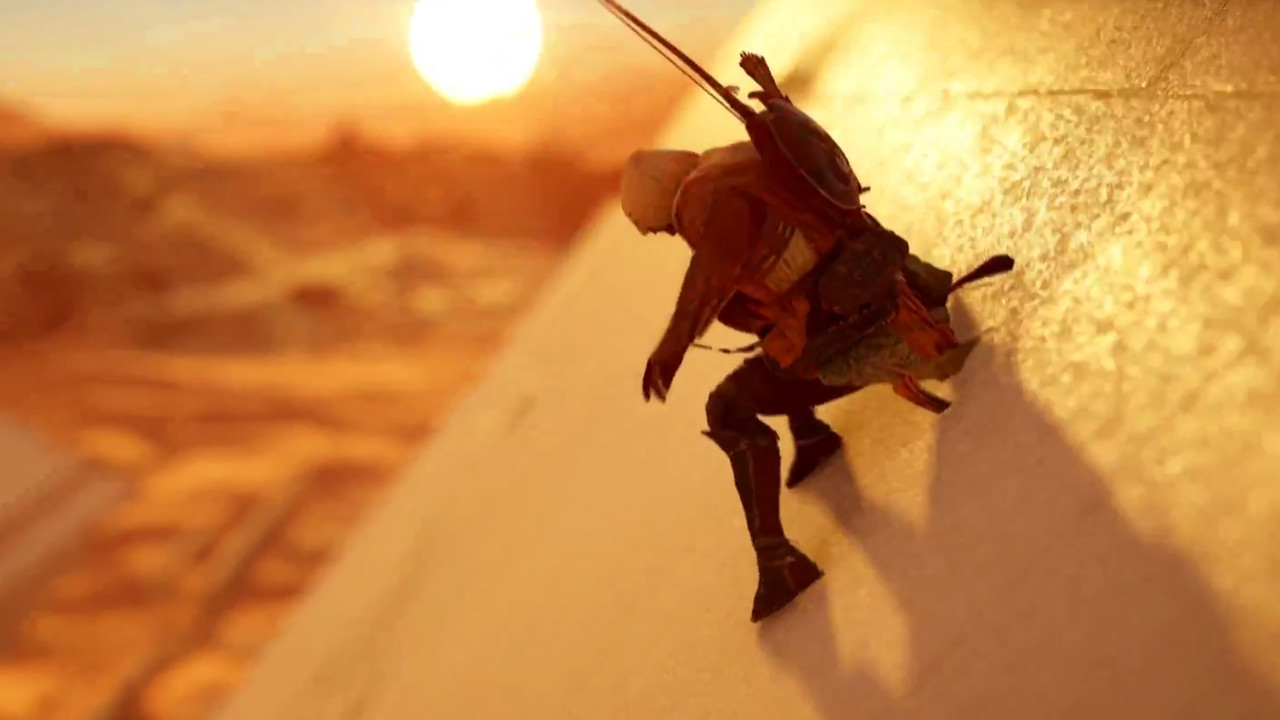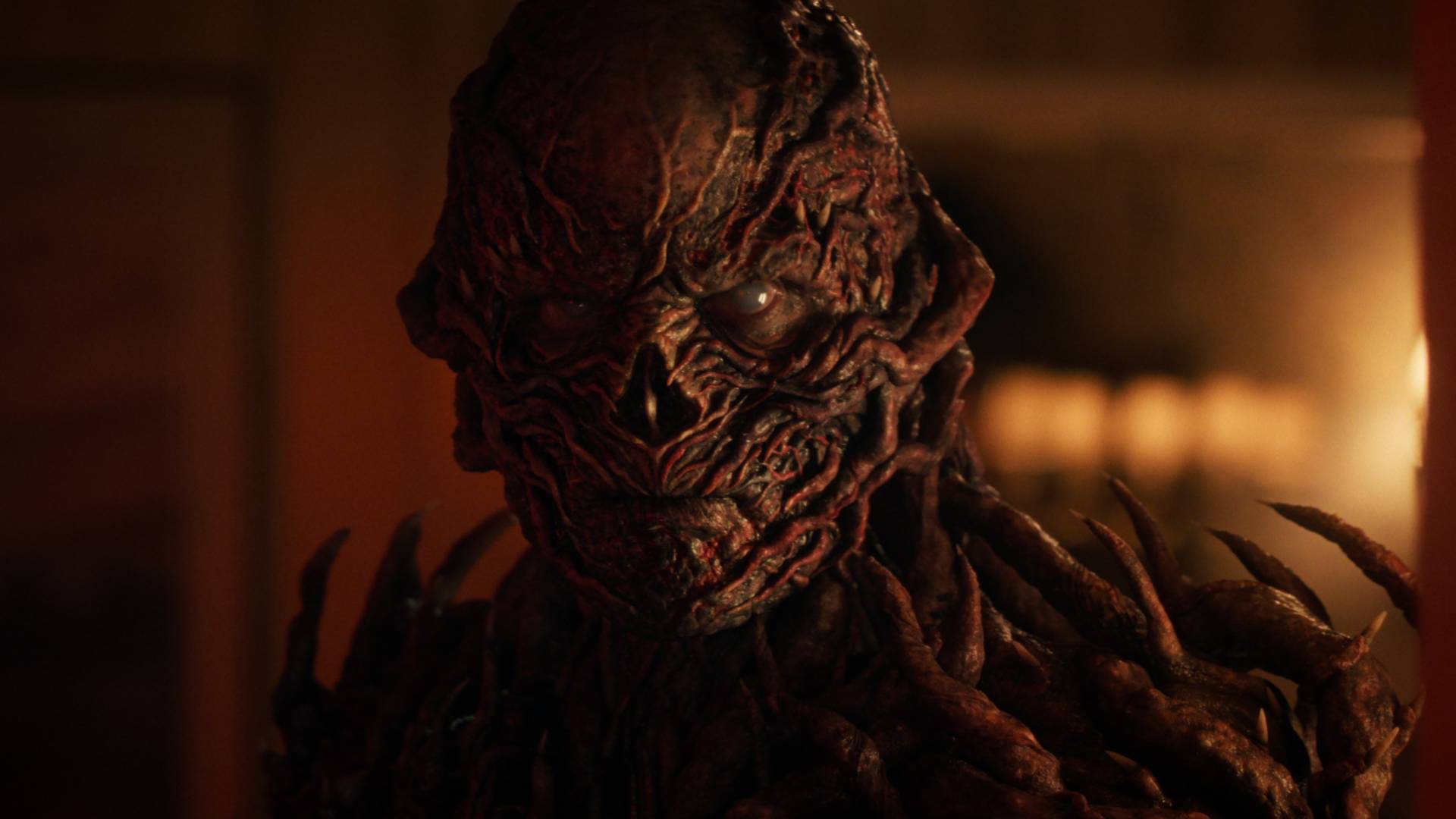Viewpoints, loot and hitbox based combat - Assassin's Creed Origins' director spills its bladed secrets
Ancient Egypt changes everything. We caught up with Ashraf Ismail to find out more about revamping the franchise from the sand up
Assassin's Creed has changed. Even the mere matter of a single year off has done wonders for the series with the Black Flag team literally pushing the big red reset button on the side of the Animus. Going back to Ancient Egypt and the very beginning of the Creed itself, Assassin's Creed Origins changes everything, making you drop a decade's worth of muscle memory into the nearest haycart. The result? A ridiculously exciting new adventure that still manages to carry the flavour of Assassin's Creed without being bogged down by a mini map and a million useless chests.
Combat has been revamped in a Dark Souls style for new hooded hero Bayek, quests across deserts and lush oasis are now the order of the day, and there's loot. Loot! In an Assassin's Creed game! What wonderful sorcery is this? Well, to find out exactly what kind of mystical magic has occurred, I caught up with Origins creative director Ashraf Ismail to talk pyramids and eagles and to find out exactly what has made the slaughtery cut for this brave new world for the series. First off...
Don't worry, viewpoints aren't gone

"We still have the viewpoints. This was something we debated early on but we brought them back for the pure purpose that we felt it was a nice homage to the series, it was a nice way to show off the beauty of the world when you synchronise and the world is just so beautiful that every excuse to do this we take. That’s actually how we made Senu [the eagle]. Right after Black Flag, when you go to the top speed of the Jackdaw and the camera pans back, like that, we thought it was such a beautiful way and a serene way to look the world and the beauty of the world that we asked ourselves “How can we look at the world from different perspectives?” And one of our designers prototyped an eagle three and a half years ago. The first prototype we created, and we were like 'OK, we need this in the game. Looking at the world from a bird’s eye view.'"
"So we kept the viewpoints but we’ve kind of changed their function, so now when you synchronise you no longer unfog the map – you do that by physically coming to areas, so the system has exploration. They do uncover question marks, so if you haven’t physically visited a place yet so it does kind of help you out with that. The true thing it does – which is our way of playing with the series – is that in every viewpoint across all ACs you always have an eagle that flies overhead – in our game we don’t have any eagles flying overhead, and the idea is when Byek reaches this point and is synchronising, he’s actually teaching Senu to take in the lay of the land, and what it does is it enhances his scouting ability, so Senu gets faster at tagging enemies and opportunities and all this stuff. So you’re actually doing the viewpoint to train Senu and the kind of play of that is, once it’s done here then the rest of it follows. That’s why it’s an origin!"
Combat has been scrapped and ACTUALLY rebuilt from the ground up
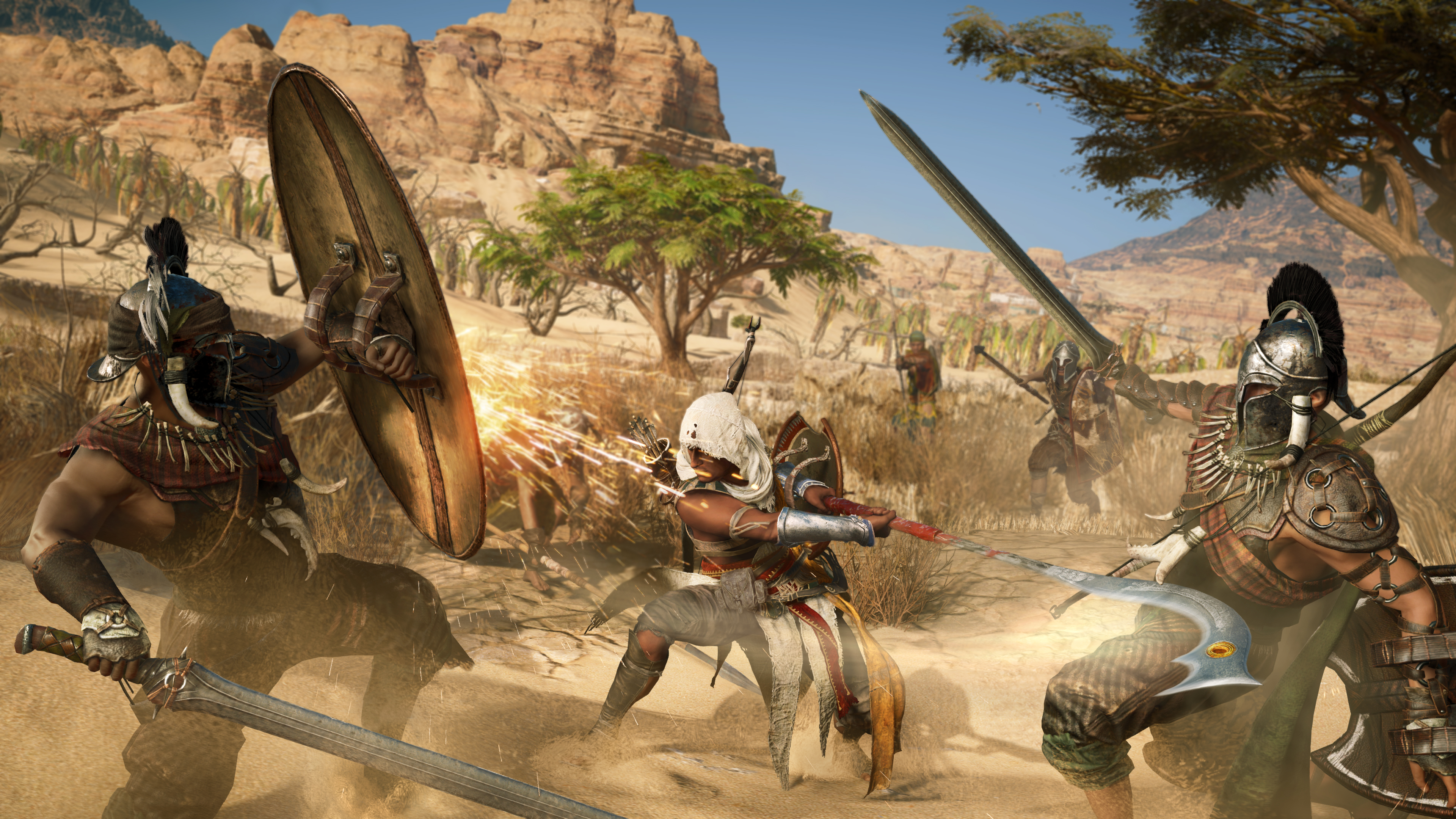
"If you want to get technical, the previous ACs had a paired animation system. Every AC was paired animation. What that means is, you press attack, almost regardless of where you were, let’s say up to to 12 to 5 metres, you and the enemy come together, play your animation and split apart. When we challenged ourselves to say 'Let’s reinvent fighting' – which is something we’ve tried to do in the past and I think we’ve tried, but it’s always in the details, it’s different. The thing we looked at was 'OK, it’s because we’re fundamentally using the same foundation' – and that’s the part where it’s hard to get away from that. So we said 'OK, let’s change our foundation' – so we went to a hitbox based system, which means that when you swing your weapon, wherever you are, it’s going to swing. If you hit something or multiple somethings, they take damage. If you hit nothing, well... you probably just opened yourself up, so you have to be careful."
Choose your weapon wisely
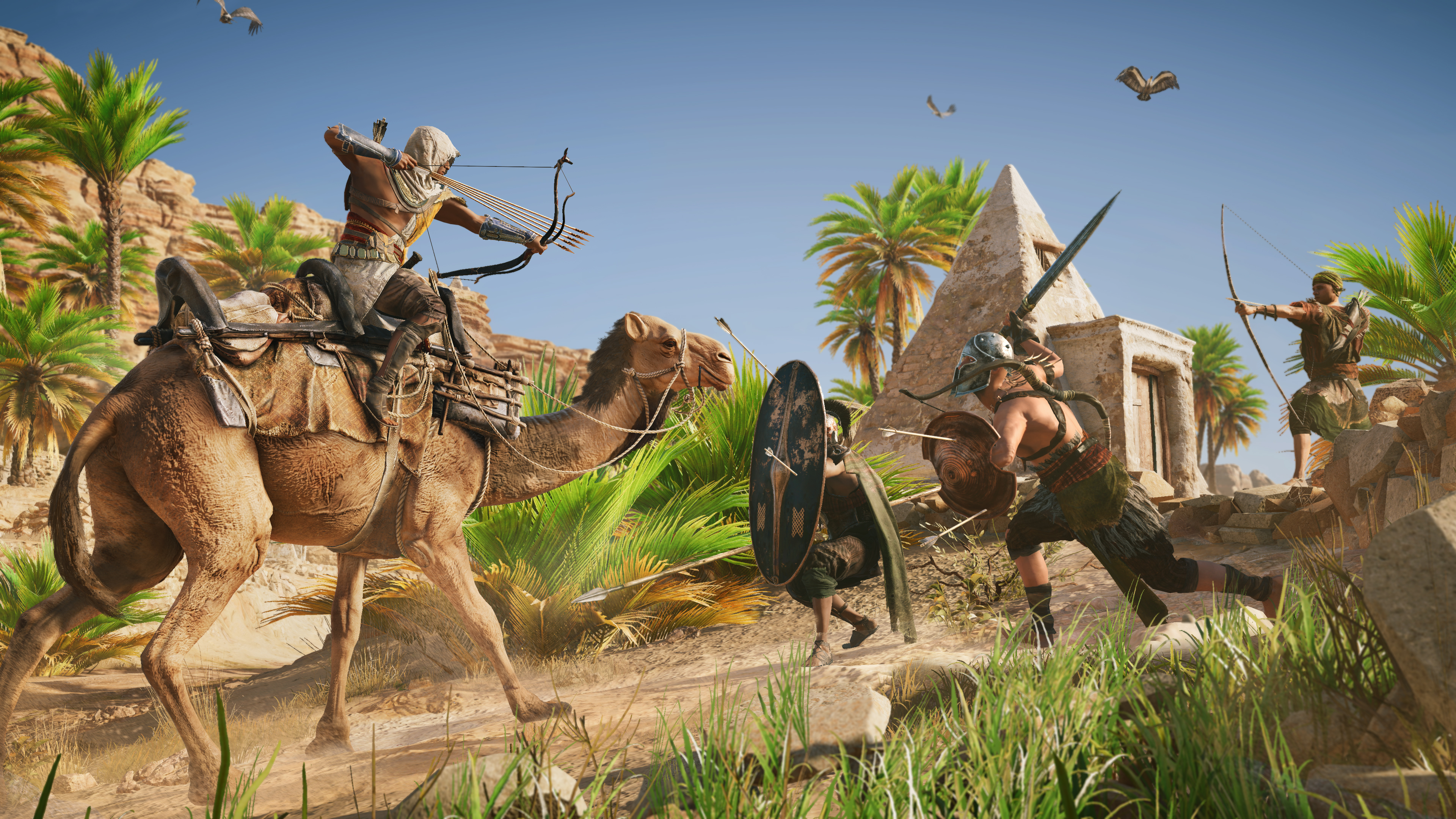
"The range of the weapon, the speed of the weapon, the strength of the weapon – the number of enemies, what they have – it all matters. It also opens up the door to say that enemies will be very aggressive and they might attack multiple at the same time so it’s not friendly. But then we give you defences, so you have a shield, you have a dodge, you have a parry – so the point was we wanted to have a lot of gameplay depth, we wanted to have different weapons with different styles, so naturally these properties really matter to the gameplay that there is a depth there to the system and it’s there, again, if you’re playing for thirty hours the game is proposing new challenges, new rewards, new ways of playing. This was really important for us – so it was really looking at the past and saying – if we want to bring something new, how do we do that? And it was actually changing that base fundamental."
Loot will completely change the way you play

"The action-RPG elements was really to support different playstyles but also to constantly challenge the player. As you meet tougher and tougher enemies, they’re not just statistically harder, they also have harder behaviour – new attacks, new behaviours. So by going more RPG it allows us to do this, but also as a natural part of being more action-RPG orientated, it means we have loot, it means we have gear.What we wanted was the surprise element, the value of... 'I have a loot bag' or 'I have a chest that I’m opening, what’s inside?' – So we saw the value of that as a reward mechanism, but also as a way to have the player constantly changing their strategy, whether they’re a fighter or stealth player or a ranger, that you find something that might answer that question of 'Oh, shall I use this now?'
Weekly digests, tales from the communities you love, and more
"We felt like quests are a wonderful way of telling little stories that are encapsulated and a way to meet our characters"
After playing for thirty or forty hours, if the game can still propose that, then that’s wonderful, and we felt that this was something we needed to do if we wanted to go there, so we have rarities, we have levels and properties and attributes. One thing I will say is – even just from my experience – when you learn how to play with a spear, and all its combos and abilities rolled into that, it’s very different than fighting with a Khopesh and you learn that, and let’s say you learn that too, and all of a sudden you find a spear that’s poison-tipped. And again that’s a modified – it’s not going to drastically change your fighting style but it will change your strategy, and this is cool – this is gameplay depth, this is value."
Quests are going to deliver some true stories of Egypt
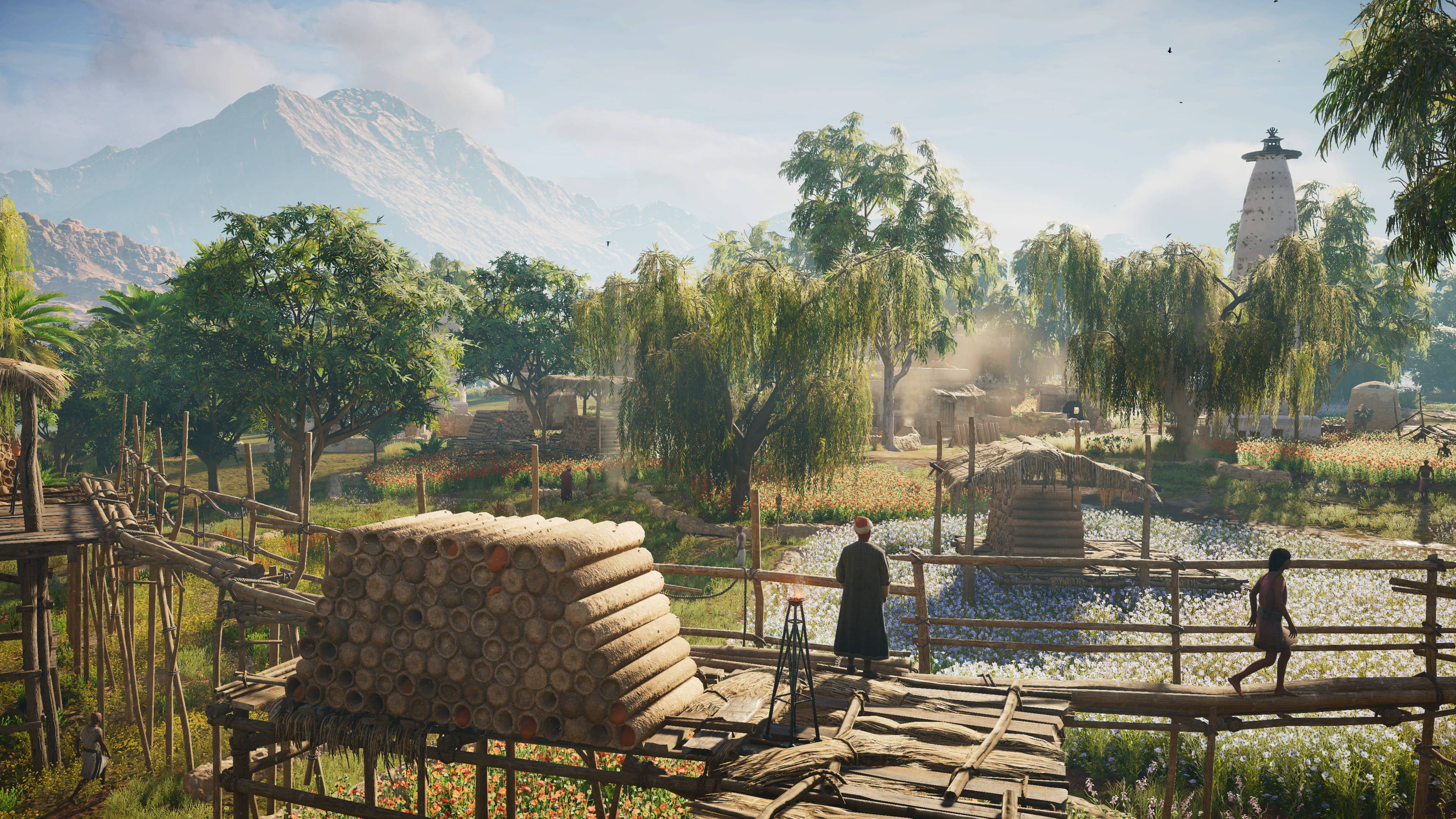
"We’ve done a lot of research; we’ve had historians and Egyptologists embedded in the team, and we found a lot of really amazing stories of little events, people that did great things, and we asked ourselves 'How can we put these stories in here?' So we almost do like educate people about actual Egyptian stuff, and this is why we go into our quest structure, and it’s one reason that we wanted a quest structure – we felt like quests are a wonderful way of telling little stories that are encapsulated and a way to meet our characters – and even the subsequent quests with them, they’re all their own little stories. And so that’s why we went to a quest structure and yes, a lot of our quests are actually based off of research that we found – not all of it of course, a lot of it is hand crafted but there are characters you meet that are real characters that lived in the world and did something very interesting that we wanted to expose."
Want to know what it's like to play in the sandbox of Ancient Egypt? Check out my Assassin's Creed Origins hands on from E3 2017.

Louise Blain is a journalist and broadcaster specialising in gaming, technology, and entertainment. She is the presenter of BBC Radio 3’s monthly Sound of Gaming show and has a weekly consumer tech slot on BBC Radio Scotland. She can also be found on BBC Radio 4, BBC Five Live, Netflix UK's YouTube Channel, and on The Evolution of Horror podcast. As well as her work on GamesRadar, Louise writes for NME, T3, and TechRadar. When she’s not working, you can probably find her watching horror movies or playing an Assassin’s Creed game and getting distracted by Photo Mode.
